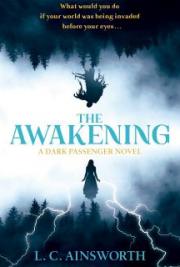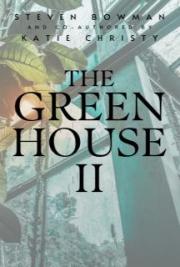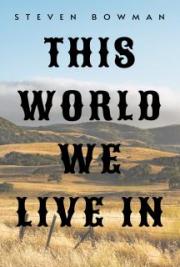Are you trying to make a name for yourself as a writer? While it’s important to market your
books, you should also focus on building a strong online presence. For example, you could start
blogging to engage with and nurture your readers.
First, set up a free website on a no-code platform like Wix. This will allow you to customize
your blog, add content, and upload files with just a few clicks. Plus, you can choose from over
800 pre-built website templates in every industry you could think of.
Next, come up with an action plan. Decide what you’ll write about, how often you’ll publish new
content, and where you’re going to promote your blog. Meanwhile, learn a thing or two about
SEO to gain exposure and climb Google’s rankings.
Ready to give it a try? Here’s why you need a blog—and how to get the most out of it.
Do Authors Really Need a Blog?
The answer is a sound “yes!” Seth Godin, Joanna Penn, Nick Stephenson, and other best-selling
authors all have blogs—and for good reason. Through blogging, they share their knowledge and
promote their work while generating extra income.
For instance, Seth Godin’s blog has more than a million readers and over 8,500 posts. It also serves as a marketing platform for Godin’s marketing seminars, podcasts, and books.
However, blogging isn’t just for well-established professionals. On the contrary, it can be an excellent tool to build your reputation, attract new readers, and stand out from the crowd.
Without further ado, here are seven reasons every writer needs a blog.
Gain Visibility Online
Blogging allows you to reach a global audience and build a community around your work. At the same time, it’s an opportunity to capitalize on SEO, which can lead to higher website traffic and increased exposure.
Sure, you could get similar results with paid advertising, but the costs can run into thousands of dollars. By comparison, running a blog is free or low-cost and can open up new opportunities to grow your writing business.
This brings us to the next point…
Build Passive Income
From affiliate marketing to sponsored posts, there are dozens of ways to monetize a blog. That extra income can make a world of difference for new authors looking to get their books out in the world.
For example, you could sell advertising space, online courses, or consulting services.
If, say, write about entrepreneurship, consider offering coaching to people who want to start or grow a business. Recommend that they buy your books for further insights.
Another option is to set up a members-only section with exclusive content. Here you could share expert insights, snippets of your books, and other helpful resources in exchange for a monthly fee.
Sell More Books
Starting a blog can help you expand your reach and build a loyal readership. If your content is good, it will attract people who may not otherwise have discovered your work. This can result in higher exposure and more book sales.
Blogging also makes it easier to engage with your readers and let them know the real you. Take the time to reply to their comments, encourage them to ask questions, and keep them up-to-date with your upcoming projects.
Boost Your Profits
Most authors sell their books on Amazon, Draft2Digital, Apple Books, or other online marketplaces. Some have also partnered with book publishers and libraries. That’s great for exposure, but the costs can be hefty.
Take Amazon, for example. While you can publish your books for free, you have to pay a commission per sale.
Since the platform pays royalties of 35% or 70%, you’re leaving a lot of money on the table. This doesn’t even include the cost of printing, advertising, and other services.
The solution?
Cut out the middleman and sell directly to your readers.
Ideally, take this step when your blog has a big enough audience and decent traffic. Invest the savings in book promotion, SEO, or other services that could help grow your business.
Fine-Tune Your Writing
Blogging can be a fun way to practice your writing skills and gain experience. On top of that, you can ask your readers for feedback to gain insight into their expectations.
Another advantage is that you can experiment with different writing styles, angles, or types of content to see what resonates with your audience. It’s also an opportunity to find and develop your writing voice so you can get better at your craft.
Make sure you check your website analytics, too. Use online tools like Google Analytics, Google Search Console, Semrush, or Hotjar to see which posts drive the most traffic and engagement. Leverage this data to improve your content and learn more about your readers.
Establish Expertise and Credibility
When you’re a new author, you may not have enough readers simply because people have no reason to buy your books. They know nothing about you or your work, so why would they spend their money on what you’re selling?
That’s where a blog can help. Blogging allows you to share your expertise, build trust, and give
readers a glimpse into your world.
For instance, you could publish a sneak peek of a book you’re working on. Or write backstories about the characters in your books.
Go one step further and share personal experiences, such as the reason you started writing or the challenges you face. Give people something they can relate to, and they will come back for more.
Build Meaningful Connections
Not only does blogging allow you to connect your readers on a personal level, but it can also open new doors.
Let’s say you write about marketing and sales. Your blog posts could catch the eye of a company seeking consulting services, which may lead to freelance work, collaborations, or a high-paying job.
If you’re a personal development writer, a blog could help you land speaking gigs at workshops, seminars, or podcasts. Over time, you can establish yourself as an industry expert and build connections that may lead to fruitful partnerships, sponsorships, and other opportunities.
Level Up Your Writing Career with a Blog
As you can see, there are plenty of reasons to start a blog. Think of it as a way to build credibility, make a name for yourself, and, ultimately, sell more. Plus, you’ll get the chance to practice your writing craft and become an expert in your genre.
For starters, choose one of the best free website builders and create a content strategy. Consider publishing different types of content, from short stories to reviews and opinion pieces.
Generally, it’s a good idea to post content at least two or three times per week in the first few months of blogging. Share your work on social media, link to your blog on book review sites, and encourage readers to engage with your content and provide feedback.













